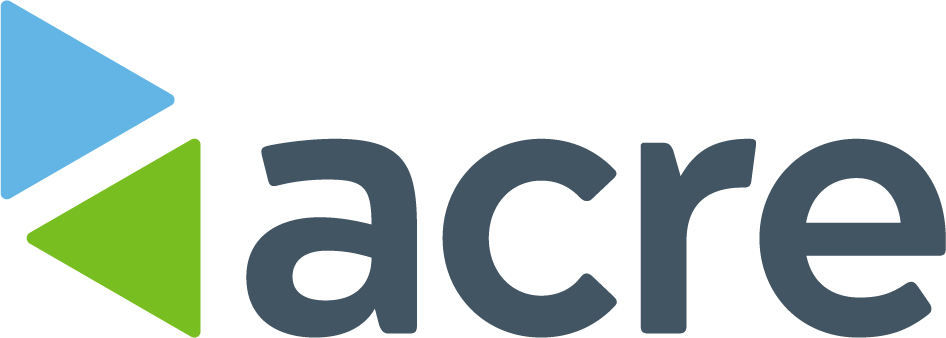Diversity in Sustainability Releases Results From the State of Equity, Diversity and Inclusion in Sustainability Survey
by Grace Coleman

TORONTO, September 16, 2021 /3BL Media/ - Today, Diversity in Sustainability (DiS) announced the results of its State of Equity, Diversity and Inclusion in Sustainability Survey. With 1,500 respondents, this survey provides valuable insights into the sector of sustainability, including detailed demographics, barriers to entry and advancement, and a view of individual experiences and organizational approaches to equity, diversity and inclusion (EDI), mainly in the geographies of Canada, United States and the United Kingdom.
Previous research has shown social and environmental injustices are disproportionately borne by Black, Indigenous and other communities of colour, and the effects of climate change are and will continue to be felt by the most vulnerable. Yet, in a profession focused on creating a better world for all, who defines what a better world is and for whom? Key highlights from the survey show that:
-
Sustainability is an elite and privileged profession, which attracts those who have the means to be in it. Of the survey respondents, 75 per cent had a middle-class upbringing, 90 per cent have at least a bachelor’s degree and 62 per cent have a master’s degree. With internships and entry-level roles known for low pay and often requiring a high level of education, this excludes many, including those that typically suffer from environmental and social injustices.
-
Many do not see the profession as being diverse. Only 27 per cent of all respondents felt that their leadership teams were diverse, and Black (24 per cent), South Asian (29 per cent) and East Asian (37 per cent) sustainability practitioners were less likely to agree that they saw someone like them in the profession, as compared to White women (70 per cent).
-
White sustainability professionals have the longest tenure in the sustainability profession and are more likely to hold senior roles; however, a demographic shift is ahead, with younger sustainability practitioners more likely to be people of colour. Among our survey sample, 42 per cent of sustainability professionals aged 25-34 are people of colour, and 54 per cent of sustainability professionals aged 18-24 are people of colour. This suggests that we need to have a more considered approach to succession planning and inclusion now to avoid a drop-off in retention.
-
Black and South Asian professionals, and those from materially poor and working-class backgrounds, feel left behind in the profession, while neurodiverse and disabled sustainability practitioners do not feel psychologically safe within their organizations.
-
Only 52 per cent of respondents felt as though their organizations had put their words into action on EDI. As an industry, this suggests we have much work to do to make our organizations more inclusive.
Heather Mak, co-founder, Diversity in Sustainability: “With an industry that is focused on creating a better and more sustainable world, we as a profession have far to go in terms of creating an inclusive sector. We envision the State of Equity, Diversity and Inclusion in Sustainability Survey as a starting point for building a blueprint for all the key participants in the ecosystem to build a more equitable and inclusive sector. We thank Acre for their partnership, and BuzzWord, Loblaw Companies Limited, Nutrien, QuadReal, and Weinreb Group Sustainability Recruiting, for their financial and in-kind contributions to this independent research.”
Chloë Hunt, Global Head of Research & EDI Lead: “Mounting pressure on organizations, institutions and businesses around social and economic injustice, as well as the undeniable impacts of climate inaction, are dictating a greater interest in corporate activity where businesses are being held accountable for the part they play in shaping society. With this interest, and the profession’s increasingly intersectional approach, we have a powerful obligation to ensure that matters related to equity, diversity and inclusion (EDI) keep pace and become engrained into our thinking.
It is our ambition that, together with organizations like DiS, we’ll soon see an equitable and equal playing field that enables an increase in employee engagement, a shift to more inclusive stakeholder relations, and a profession where diversity of thought and experience is embedded in every organization and their value systems.”
The State of Equity, Diversity and Inclusion in Sustainability Report will be available beginning Thursday, September 16, at www.diversityinsustainability.com. In the coming months, Diversity in Sustainability will also host a series of dialogues about specific elements of the report with practitioners and industry partners to develop a blueprint for inclusion in the profession.
About Diversity in Sustainability
Diversity in Sustainability (DiS) is a non-profit membership organization established in June 2020, initiated by diverse sustainability professionals to build an equitable and inclusive sustainability sector. Its aim is to equip current and future Black, Indigenous, and People of Colour (BIPOC)/Black, Asian and Minority Ethnic (BAME) sustainability leaders with the skills, networks and resources to accelerate the transition to a sustainable and just future. The organization also aims to make systems change by enabling the wider sustainability sector to be inclusive for underrepresented populations.
For media inquiries, contact: Heather Mak, Co-founder, info@diversityinsustainability.com
About Acre
At Acre, we work with the most aspirational businesses with potential to make real change; from those who are just starting out to those who are well on the journey to crafting a legacy. Our 18 years' experience in sustainability recruitment, combined with our extensive global network, enables us to provide talent solutions that are designed to deliver this change in functions which include Sustainability & CSR, Corporate Affairs, ESG & Sustainable Finance, EHS as well as Energy & Clean Technology.
For media inquiries, contact: Chloë Hunt, Global Head of Research & EDI Lead, edi@acre.com

